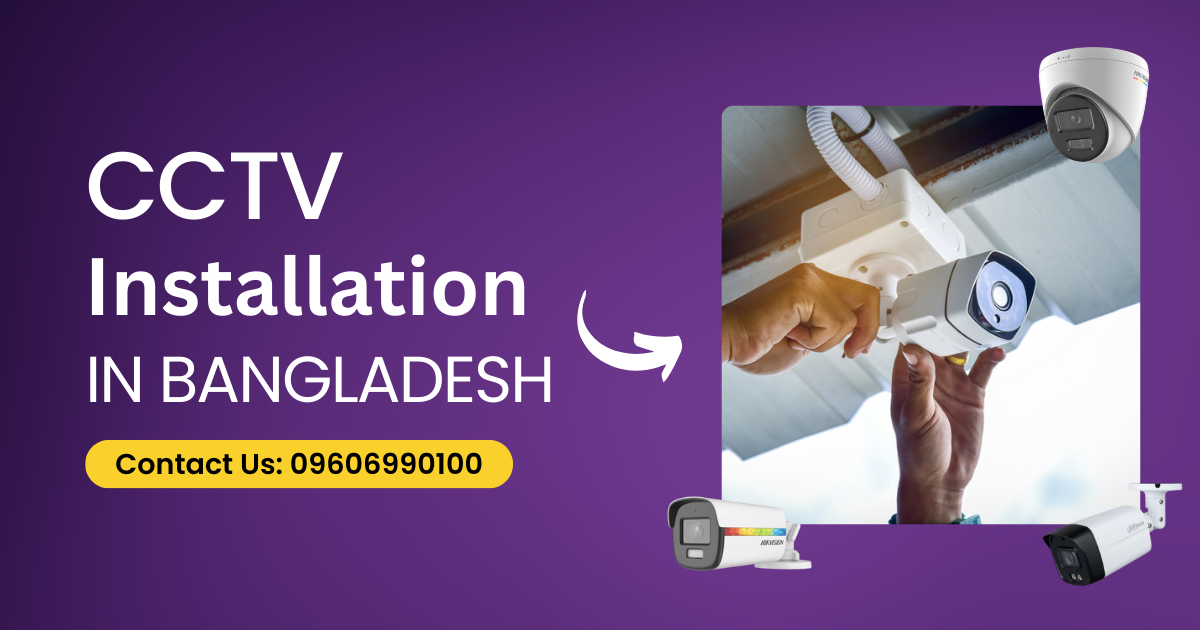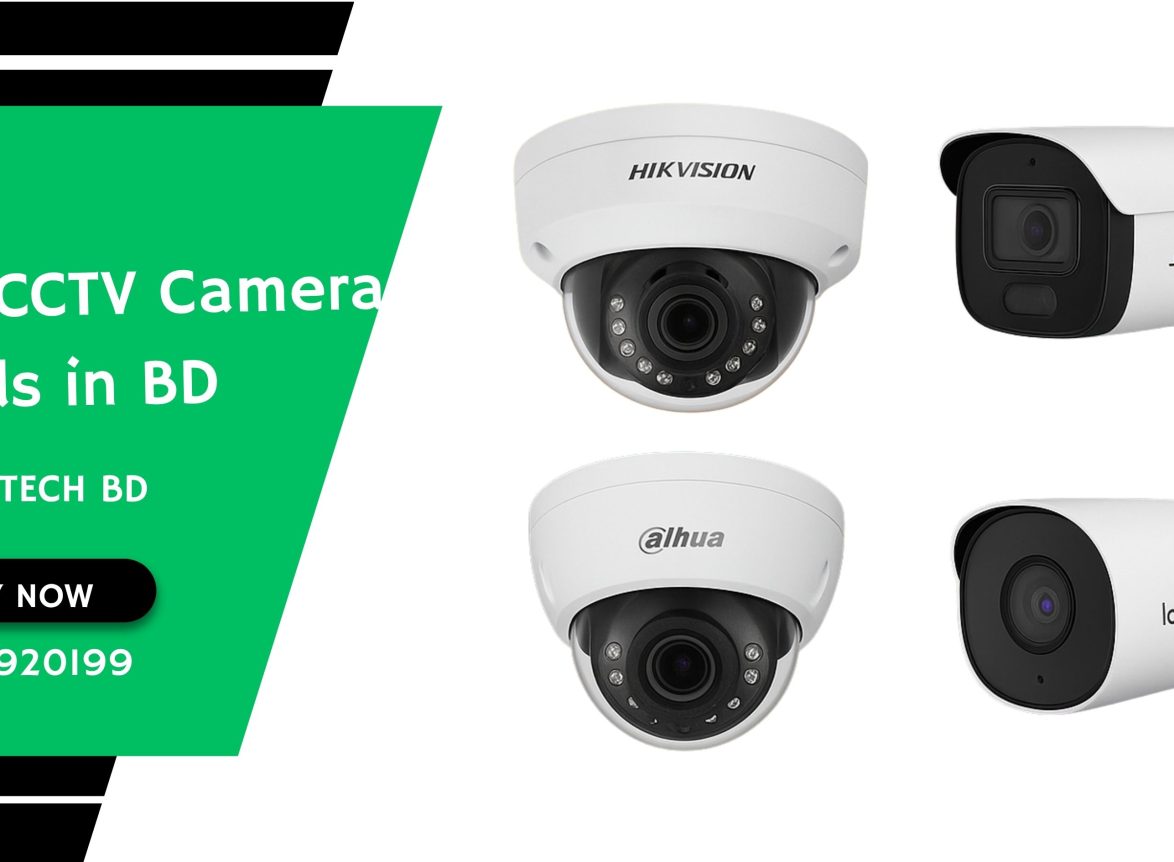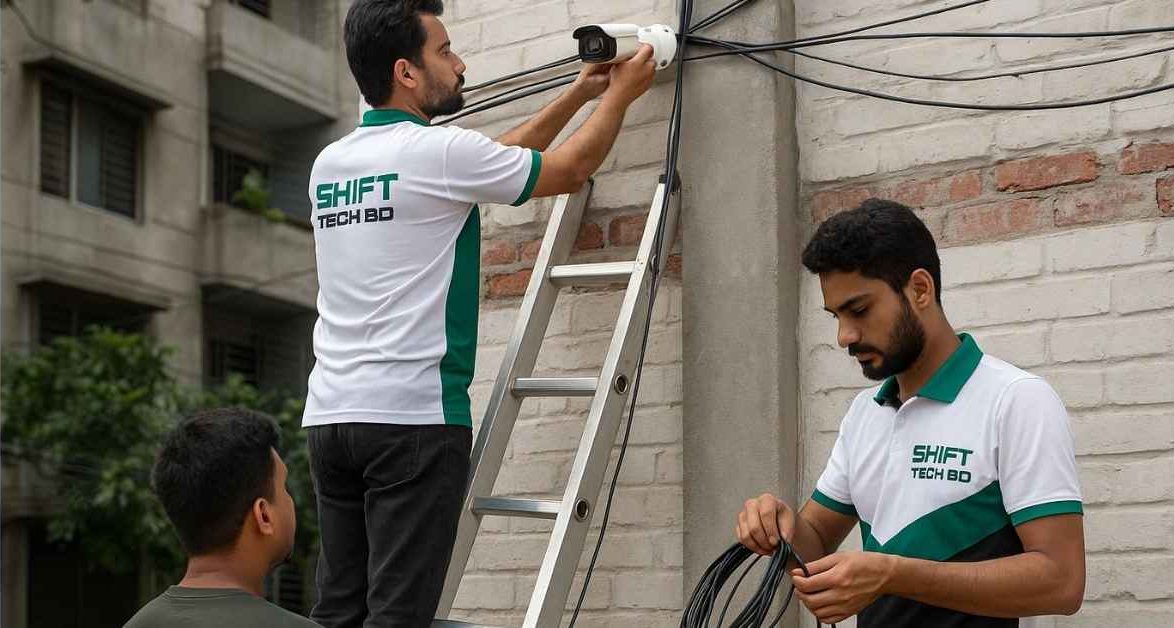CCTV systems provide peace of mind by monitoring your property 24/7. With the rise in security concerns, an efficient and well-placed CCTV camera system acts as a deterrent against theft, vandalism, and other illegal activities. However, to get the most out of your CCTV system, proper installation is key. In this article, we’ll cover essential CCTV camera installation tips, common mistakes to avoid, and how homeowners and businesses can benefit from professional installation services.
Types of CCTV Cameras
Before diving into installation tips, it’s crucial to understand the different types of CCTV cameras available:
- Analog CCTV Cameras: These are traditional security cameras that connect to a DVR (Digital Video Recorder) via coaxial cables.
- IP Cameras: Internet Protocol cameras that transmit footage over a network or the internet.
- Wi-Fi Cameras: Wireless IP cameras that connect to your network wirelessly but still need a power source.
Professional Installation Service ( Call Us: 09606990100 / 01317-492019 )
We provide expert installation services for all types of CCTV cameras, from analog to advanced IP and Wi-Fi cameras. Our technicians are highly trained to ensure that the system is optimized for the specific layout of your home or business.
- CCTV Camera Installation Cost: 500 BDT
- IP Camera Installation Cost: 1000 BDT
- Wi-Fi Camera Installation Cost: 1000 BDT
Let’s explore how you can enhance your security system by following the right installation methods and tips.
CCTV Camera Installation Tips and Tricks 2025
1. Plan Your Camera Locations Strategically
Choosing the right location is the most critical step in CCTV installation. You want to ensure maximum coverage while eliminating any blind spots. Here are some tips:
- Entry Points: Place cameras at all main entry points like front doors, back doors, and windows.
- Driveways and Parking Areas: For businesses, it’s crucial to monitor parking lots and loading docks.
- High-Value Areas: Focus on areas where valuables are kept such as safes, offices, or retail storage rooms.
- Elevated Spots: Mount cameras at a high vantage point to cover a larger area and prevent tampering.
2. Understand Lighting Conditions
Lighting plays a major role in CCTV performance. For outdoor cameras:
- Avoid Direct Sunlight: Position the camera away from direct sunlight to avoid lens flare and washed-out footage.
- Use Infrared Cameras for Low-Light: Install infrared (IR) cameras or cameras with night-vision capabilities to capture footage in low-light conditions.
For indoor installations:
- Balance Artificial and Natural Light: Ensure that both natural and artificial light sources do not interfere with the camera’s visibility.
3. Use the Right Type of Camera for Each Area
Each area of your home or business might require different types of cameras:
- Dome Cameras: Ideal for indoor spaces as they are less noticeable and offer a wide field of view.
- Bullet Cameras: Best for outdoor use due to their long range and weather-resistant housing.
- PTZ Cameras (Pan, Tilt, Zoom): Use these in large open areas where you need flexibility to cover various angles and zoom in on details.
4. Secure Your Camera Against Vandalism
CCTV cameras are often targets of vandalism, so securing them properly is important:
- Install at a Height: Mount cameras high enough so that they can’t be easily reached.
- Use Tamper-Resistant Mounts: Invest in mounts that are difficult to tamper with or remove.
- Cover Cables: For wired cameras, make sure cables are hidden or housed in protective conduits to prevent them from being cut.
5. Ensure Proper Cable Management
For wired cameras, good cable management is essential:
- Use Quality Cables: Use high-quality cables for analog or IP cameras to prevent signal loss and improve video quality.
- Avoid Power Overload: Ensure that the camera system is not overloading your power supply or network bandwidth.
6. Set Up Remote Access and Mobile Alerts
Modern CCTV systems allow for remote access via mobile apps. Ensure you:
- Configure Remote Access: Set up remote viewing so you can monitor your property from your smartphone or tablet.
- Enable Mobile Alerts: Get instant notifications when the system detects motion, enabling real-time response.
How to Install Different Types of CCTV Cameras 2025
1. How to Install Wired CCTV Cameras
- Mount the Camera: Securely mount the camera on a stable surface.
- Connect the Camera to DVR: Use coaxial cables to connect your camera to the DVR.
- Set Up Power Supply: Ensure the camera is connected to a reliable power source.
- Test the System: Check if the camera is capturing and recording properly on your DVR.
2. How to Install IP Cameras
- Mount the Camera: Choose an optimal location and mount the camera.
- Connect to Network: Plug the camera into the network via Ethernet or Wi-Fi.
- Configure IP Settings: Access the camera’s software to assign an IP address.
- Test Footage: Ensure the camera is transmitting footage to the network or NVR.
3. How to Install Wi-Fi Cameras
- Mount the Camera: Choose an appropriate location within Wi-Fi range.
- Power the Camera: Connect it to a power source.
- Sync with Network: Follow the manufacturer’s instructions to connect the camera to your Wi-Fi network.
- Test Wireless Signal: Ensure that the camera is getting a strong wireless signal and is transmitting footage.
FAQs
1. How many cameras do I need for my property?
The number of cameras depends on the size of the property and the areas you want to monitor. A typical home may need 4–8 cameras, while a business might require more, depending on the layout and size.
2. Can I install CCTV cameras by myself?
While DIY installation is possible, professional installation ensures the best performance, proper placement, and avoidance of blind spots.
3. How much does CCTV installation cost?
- CCTV Camera Installation: 500 BDT
- IP Camera Installation: 1000 BDT
- Wi-Fi Camera Installation: 1000 BDT
4. What is the difference between IP cameras and analog cameras?
IP cameras transmit footage over a network or the internet and offer higher resolution. Analog cameras use coaxial cables and connect to a DVR.
5. How can I monitor my cameras remotely?
Most modern CCTV systems offer remote monitoring through a mobile app. You’ll need to configure your system to connect to the internet for remote access.
6. Do CCTV cameras work in the dark?
Yes, many CCTV cameras come equipped with infrared night vision to capture footage in low-light or no-light conditions.
7. Are wireless cameras reliable?
Wireless cameras can be very reliable if they are within range of a strong Wi-Fi signal and have a consistent power source.




Leave a Comment
Your email address will not be published. Required fields are marked *